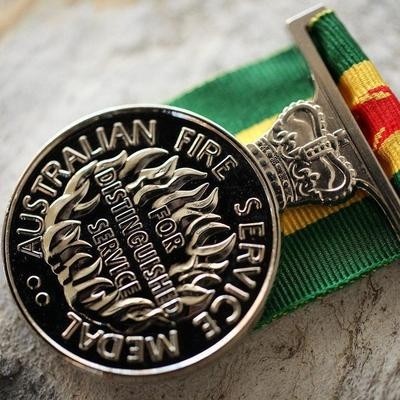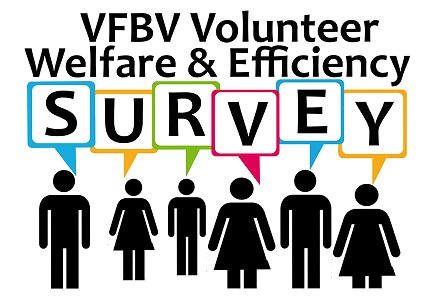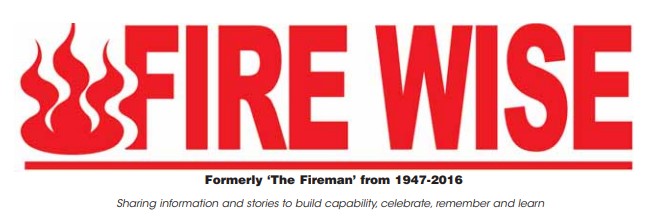Prevention is better than a cure
By Adam Barnett, VFBV Chief Executive Officer
Many of you would have heard the saying that an ounce of prevention is worth a pound of cure. And while this is often used in medical circles, it was actually a quote from Benjamin Franklin circa 1735. Often described variously as a writer, scientist, inventor and statesman, he was one of the founding fathers of the United States, and helped draft the declaration of independence, of which he was also a signatory. Most will associate Franklin from their school curriculum with his scientific proposal of flying a kite in a storm to prove that lightning was electricity.
Less known, was that he created one of the first volunteer firefighting brigades (companies as they were called) in America. Colloquially called ‘Franklin’s Bucket Brigade’, it was the first formally organised all volunteer fire company in the American colonies. What made his brigade distinct was that rather than only being established to protect its members (in the same way early insurance brigades operated in Australia) his brigade protected the entire community, akin to what CFA volunteer brigades do today.
The quote ‘an ounce of prevention is worth a pound of cure’ came from a letter Franklin wrote and published in his own newspaper ‘The Pennsylvania Gazette’ entitled ‘Protection of Towns from Fire’ that laid out his argument about how a city should prepare itself for a fire. It was motivated by his visit to Boston in 1733 where he was deeply impressed with that city’s fire prevention methods.
Looking at how prevention gets completely ignored in fire service outcomes measurements these days makes you wonder how this knowledge was so apparent to Franklin 289 years ago, yet lost on today’s legislators.
I remember a previous Chief Officer who frequently reminded members that we have saved more people through CFA’s community education and safety activities than over our entire history with big red fire trucks. Unsurprising, the very first recommendations of the 2009 Victorian Bushfires Royal Commission (Recommendations 1 to 7) all dealt with improvements to community advice, planning and education. In its final report, the Commission stated it was axiomatic (meaning self-evident) that the most effective way of reducing fire damage and protecting human life is to prevent fires from starting in the first place. It noted, that while it is impossible to eliminate fires, it is possible to reduce the risk and incidence of fires.
And while the Commission was referencing bushfires, it is important to consider that on average more than one person dies in a house fire in Australia every week. In fact, residential fires cause more deaths each year than floods, storms and bushfires combined.
So what is each fire service actually doing to treat that risk?
CFA’s volunteer and community embedded model achieves stronger community resilience than any other comparable model in operation across Australia. In fact, CFA is Australia’s second largest urban fire service, second only to Fire Rescue NSW. Consistent with the shared responsibility approach, CFA volunteers are embedded in the very same communities they protect and support community members to recognise and understand their role in fire safety. Much more than just response, CFA brigades cover the entire gamut of prevention, suppression and recovery across the rural and urban environment. Very few other services can claim that.
Judge L Stretton of the 1939 Victorian Bush Fires Royal Commission similarly acknowledged the critical importance of prevention, protection and education. So its not a new concept.
Studies researching preventable residential fire fatalities in Australia are instructive of the key risk factors that contribute to preventable residential fire fatalities. So, what does the data tell us?
Researchers of the most recent report into preventable residential fire fatalities establish that the conceptualisation of fire fatality risk is complex, and that a single risk factor on its own is unlikely to significantly increase a person’s risk of dying in a residential fire. It is a combination of individual risk factors mostly centred around the personal circumstance of the individual that has the most bearing. Therefore, fire services that not only treat the symptom but also the cause are the most effective in preventing preventable deaths. Research the Fire District Review Panel would be well advised to consider.
Let’s look at some specifics.
Freestanding houses/residences were the housing type where the majority of fatal fires occurred. Residential fire fatalities occur mostly in the winter months, and most commonly occur between the hours of 8pm to 8am, with the most significant spikes between the hours of midnight and 4am. Almost half lived on their own.
Older people represent over a third of total fatalities; and two thirds are people who had a disability. Two thirds were male. Collectively, two thirds had medications or alcohol present in their blood. Social and financial disadvantage was also a significant factor.
Over two-thirds of fatalities were smokers. And despite smoking rates in Australia dropping significantly over the last 30 years (down to 15.5% of the population in 2015), the proportion of preventable residential fire fatalities who are smokers has not significantly changed, meaning they are significantly overrepresented in the fatalities. Further, smoking materials themselves are a major source of ignition, with over a third of fatalities relating to smoking in bed.
From a fire service perspective, we don’t have much influence over how many people smoke or use medication or alcohol that impairs their ability to awaken. But what we do have influence over is raising awareness of the importance of smoke alarms. Research from AFAC reports that the absence of smoke alarms can increase the possibility of a fatal fire by 60%.
This is where the CFA model really comes to the fore, as it does not simply provide fire suppression. Brigades and volunteers are equally involved in community education and community safety programs that have a larger impact on reducing preventable fire fatalities than any other action, yet inexplicably these programs and measurements do not form part of Victoria’s formal performance monitoring framework that is only interested in looking at minutes out the door.
And for proponents of old and non-contemporary unscientific time-based performance measurement of fire services, please note the following.
In today’s homes, residents have a safe escape time of only three minutes. This ‘three minutes’ has often elapsed before emergency services have even been notified. So the most effective action we can take as a fire service is to encourage and support working smoke alarms (especially in high risk homes) and the adoption of residential sprinkler systems.
While public education is often viewed through the prism of TV commercials, boots on the ground is the gold standard. Actually getting out in the community and having these conversations one-on-one and in people’s homes is far more effective and what makes a CFA brigade different.
VFBV has long advocated for enhanced fire safety in the residential space, and CFA has partnered with multiple agencies and organisations at the National, State and local levels to explore options. In last year’s Community Safety Joint Committee 2-Minute- Briefings we covered the progress of low cost and affordable sprinkler systems that are being developed by the Home Fire Sprinkler Coalition, which is a partnership between AFAC and FPAA, and is modelled on an American model that has demonstrated significant success in reducing preventable residential fire fatalities.
Closer to home, CFA brigades like Noble Park Fire Brigade in District 8, for example, are putting theory into practice. The brigade has been documenting the successes of their local campaign, where volunteer firefighters conduct free smoke alarm assessments and replacements across their local community and have been running a very successful multilingual program for many years.
For example, in one weekend alone, the brigade visited 152 homes across the greater Dandenong local government area that resulted in; 325 new 10 year smoke alarms being installed; 162 non-compliant smoke alarms being found and replaced; 208 residents were engaged in discussions about improved home fire safety and more than 300 referrals for future installations where local residents were unavailable on the weekend in question.
These kind of numbers are simply unachievable by other models, yet because of how Victoria’s outcome frameworks are constructed – they are not seen as core service delivery responsibilities, and nor are they funded as such. As a CFA volunteer you should be exceptionally proud you are part of a fire service that provides unrivalled public safety across the entire prevention, detection, response and recovery gamut. Be proud of your work and be proud of your service. As Victoria’s most efficient, effective and value for money fire service, we must remain vigilant to the threat of further cuts that will not only impact CFA, but the very communities that we protect.
VALE
It is with much sadness and a heavy heart that we farewell ex-Captain Garry Mallen of Portland Fire Brigade in District 4, who was lost in the line of duty at a structure fire in the early hours of Tuesday, 30th January. Despite the efforts of CFA, FRV and Ambulance Victoria responders on scene, he was unable to be revived.
Garry was a highly respected and much-loved member and has been with CFA for more than 30 years. He will be deeply missed.
On behalf of VFBV and all fellow CFA volunteers, we offer our deepest condolences to Garry’s family, friends and loved ones, including all officers and members of the Portland Fire Brigade and surrounding brigades who are grieving his loss.
I will finish this month by quoting the final paragraph of the firefighters’ prayer, that is recalled at each year’s annual memorial service; “And if it be, while on the job, I should lose my life, please bless with your sustaining hand, all those I’ve loved in life.”
Garry Mallen funeral details
The funeral of Garry Mallen, former captain of Portland Fire Brigade and the brigade's current 4th Lieutenant, will be held at 2pm tomorrow (Friday 9 February) at Portland Civic Hall, Bentinck St, Portland.
The service and guard of honour will be live streamed on CFA's YouTube channel from 2pm.
AFSMs

VFBV congratulates the four CFA members who were among the 1,033 Australians recognised in the Australia Day honours list.
Captain Paula Grosveld AFSM, Deputy Chief Officer Ross Sullivan AFSM, Assistant Chief Fire Officer Bill Johnstone AFSM and Commander John Katakouzinos were all recognised for their service, dedication and leadership within CFA and the broader Victorian Community.
VFBV congratulates Paula, Ross, Bill and John for their outstanding contribution to CFA as well as Kathryn Gosby AFSM and Stephen Grant AFSM from the Department of Energy, Environment and Climate Change AFSMs and Costa Katsikis AFSM and Damien O’Toole AFSM from Fire Rescue Victoria who were also recognised with the Australian Fire Service Medal.
You can read more about each of the CFA recipients on the VFBV website and page 3 of this months edition of ‘Fire Wise.’
Congratulations are also extended to a number of current and former CFA volunteers who were honoured with the Medal of the Order of Australia (OAM) also.
Nominations for the AFSM award are accepted at any time through CFA’s Honours and Awards Committee, for more information on how to nominate a deserving CFA member please visit the VFBV website.
Driver SOP feedback

We are seeking feedback on revisions to six Standard Operating Procedures (SOPs) covering Driving.
These SOPs include: 12.01 Driving or Travelling in CFA and ESO Vehicles; 12.04 Collisions involving CFA Vehicles; 12.05 Safely Recover Disabled CFA Vehicles; 12.06 Non CFA Members in CFA Vehicles; 12.07 CFA Members Driving Private Vehicles; 12.08 Driver Endorsement. Copies of the revised SOP's are available from the VFBV website.
To assist members in providing feedback, short feedback survey’s have been developed for the two SOP’s with the most significant changes:
SOP 12.01 – Driving or Travelling in CFA and ECO vehicles
SOP 12.08 – Driver Endorsement
Given the importance of SOPs in CFA’s operational doctrine, VFBV encourages all senior volunteers to make themselves familiar with the proposed changes and provide feedback ASAP.
Feedback can be provided by emailing This email address is being protected from spambots. You need JavaScript enabled to view it. or via your local VFBV District Council or Support Officer.
Unreasonable Complaints Policy

We are seeking feedback on a draft policy proposed by CFA to deal with unreasonable complaints.
CFA advises that unreasonable complaints, while a very small proportion of the total number of complaints, might be directed towards any CFA member (either staff member or volunteer) and arise from several sources (staff member, volunteer, a former member, or members of the public) depending on the nature of the issue and area of CFA’s operations.
CFA is seeking ensure that there is a clear framework in place for defining and managing those circumstances in which a complaint might be considered ‘unreasonable’ that can be clearly communicated to members and the public and ensure it is applied consistently across CFA.
VFBV is seeking broad feedback and comment from volunteers in order to inform and assist with VFBV formal responses to this draft policy. VFBV District Councils have also been invited to lead local discussion at the District level.
Fire Medical Response

We are seeking feedback on a new SOP covering Fire Medical Response (FMR) that will commence later this year.
The draft SOP only cover brigades and members who are authorised to provide FMR, and covers procedures relating to PPC, equipment, responding, Firecom notifications, reporting and decontamination considerations.
Due to the relatively smaller number of brigades affected, the consultation window for this SOP will be shortened, and members are requested to provide feedback as soon as possible.
We are most keen to hear from brigades and members anticipating on being involved in the FMR program, and also welcome feedback from brigades and members currently involved in EMR (Emergency Medical Response).
Please visit the VFBV website for a copy of the draft SOP and information on how to provide feedback.
State Champs entries closing soon

A reminder that entries for the 2024 State Championships as well as Judge and Official nominations close on Sunday 18 February 2024.
For information on how to enter a team or nominate as a judge or official for any of the 2024 State Championships, please visit the VFBV website.
A reminder also that brigades who are not competing in the State Championships are also welcome to take part in the Torchlight Procession which will be held in the evening of Saturday 23 March in Mooroopna. If your Brigade would like to be part of the Torchlight Procession please email This email address is being protected from spambots. You need JavaScript enabled to view it. for further information.
The VFBV website has information for competing brigades, including updated rule books for both the rural and urban competitions as well as information on local competitions being held in the lead up to the State Championships.
If you require any assistance during the registration process or for more information on the Championships please contact the VFBV office via email This email address is being protected from spambots. You need JavaScript enabled to view it. or telephone 9886 1141.
Survey last chance

This year’s volunteer survey will close within days.
The survey measures volunteer opinions on what is important to them and how well CFA is performing according to what they are experiencing, the gap between the measurement of importance and performance is referred to as the Volunteer Welfare and Efficiency Level (VolWEL) outcome.
Scan the QR code below, or visit the VFBV website to do the survey.
Paper copies of the survey are also available by calling (03) 9886 1141.

Fire Wise – February 2024 online only edition

The February 2024 edition of Fire Wise has been published online only, this edition and past editions are available from the Fire Wise website.
You can support Fire Wise and the role it plays as an independent voice in keeping volunteers informed by becoming a subscriber. To become a subscriber visit the Fire Wise website or contact the Managing Editor of Fire Wise, Gordon Rippon-King either by phone 0402 051 412 or email This email address is being protected from spambots. You need JavaScript enabled to view it.
Recent articles on the VFBV website
Now Open – 2023 VFBV Volunteer Survey
Open for Consultation Dashboard
Feedback requested – Unreasonable complaints policy
Feedback requested – Standard Operating Procedures (Driving)
Feedback requested – Standard Operating Procedures (FMR)
2024 State Championships – Entries Now Open
Australia Day Honours List 2024
Presumptive Legislation Update
Enjoy the VFBV monthly newsletter?
If you enjoy reading the VFBV newsletter each month, why not share it with your fellow volunteers?
Either share this page with others who may enjoy the articles or encourage other volunteers to sign up to receive their own copy via email each month here.
Want to read the VFBV 2-minute briefings from the CFA/VFBV Joint Committees?
The latest edition along with previous editions can be downloaded from the VFBV website here.

